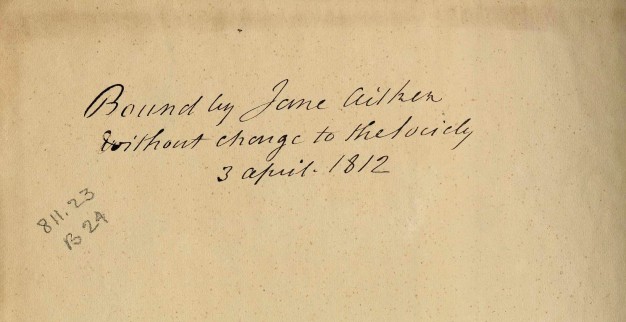Supporting Actors: Jane Aitken, Printer of the APS Transactions
Early membership lists make it clear that women were almost entirely excluded from the American Philosophical Society during its first century of existence. The Society’s first female member was elected in 1789, but she was the exception that proved the rule: despite being a prominent figure in the Russian Enlightenment and a friend of Benjamin Franklin, Catherine Ekaterina Dashkova was also royalty. It would take the Society 80 years to elect a second female member.
Nonetheless, other kinds of exceptions existed. We tend to think of science as a set of abstract ideas and discoveries. But when we consider it instead as a set of practices involving real people, places, and things, women’s contributions become more visible.
Take Jane Aitken, for example, who played a crucial role in the Society’s history by printing some of the earliest installments of its Transactions. For an organization like the APS, still in its infancy and headquartered far from the centers of European science, publishing the Transactions was a major bid for international prestige. Collecting groundbreaking papers by Society Members, these volumes testified to the organization’s past achievements and future potential. It seems significant, then, that the Society would entrust such a high-stakes project to the only female printer in town.
Born in Scotland in 1764, Jane Aitken immigrated to Philadelphia around age seven. In young adulthood she worked in the print shop owned by her father Robert Aitken, and when he died in 1802, she inherited the business, becoming one of the few independent female printers in early America. The shop passed to Jane rather than her brother Robert, Jr. not only because the latter had been disowned by their father years earlier but also because of her substantial expertise.
Jane likely assisted with the publication of the second and third volumes of the Transactions, published by her father in 1786 and 1793, and with the second edition of the first volume, published in 1789. While the attribution on the title page of Volume II seems almost calculated to deny her involvement—“Printed by R. Aitken & Son”—available records suggest that she completed its binding (the process of assembling paper sheets into a book format) and may have had a hand in its printing as well.
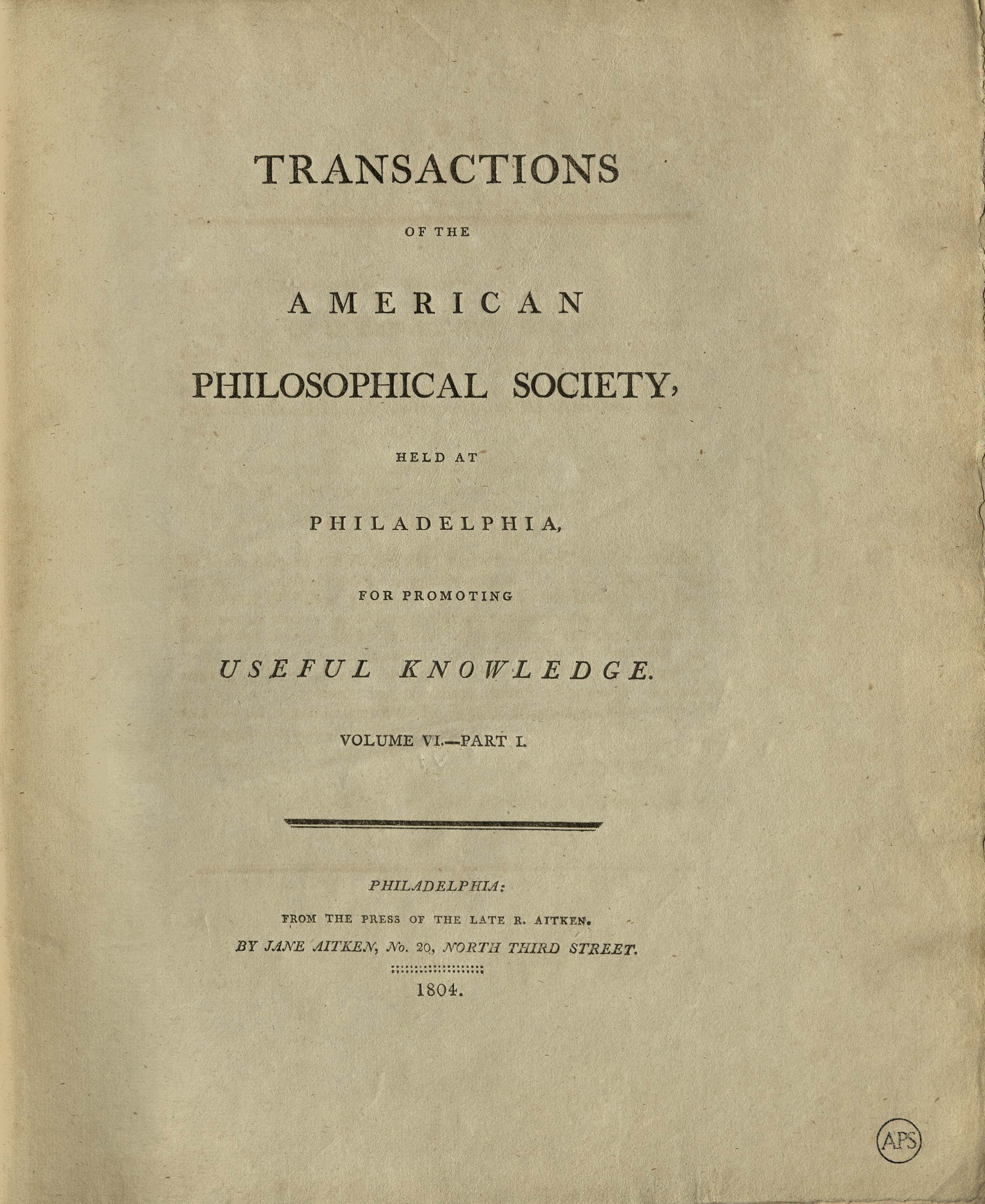
Following her father’s death, Jane Aitken independently printed Volume VI of the Transactions in two parts. But here again, we find her role understated. The title page of Part 1 (1804) credits the text to “the press of the late R. Aitken. By Jane Aitken,” thereby giving the dead man’s machinery priority over the living daughter who operated it. And on the title page of Part 2 (1809), “[Jane Aitken, Printer]” appears bracketed and in small font beneath the names of the text’s publishers. In short, early printing conventions could function to downplay women’s contributions to the Enlightenment.
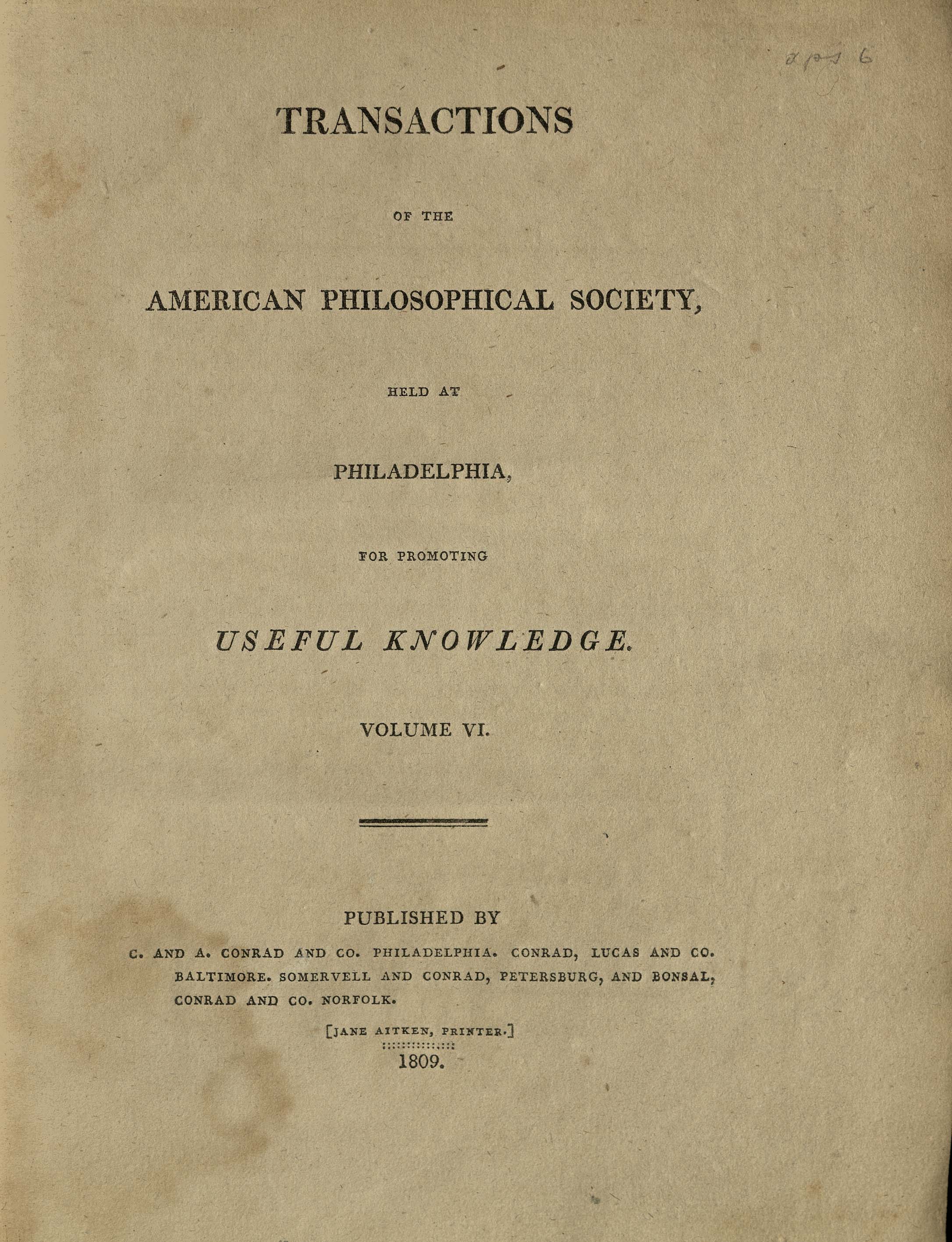
Fortunately, Jane Aitken’s papers, housed at the American Philosophical Society Library, offer a clearer picture. Much of this archive consists of account ledgers and letters to her friend, longtime APS Treasurer and Librarian John Vaughan. These writings demonstrate that Aitken was involved not only in printing new volumes of the Transactions but also in binding countless copies printed by others. In fact, historians estimate her total binding work for the APS at 400 books.
Aitken’s importance to the Society’s history is further attested by her 1810 proposal to reprint the first three volumes of the Transactions. Referred to committee but never acted on, this proposal suggests the volumes’ continued scientific utility and the Society’s growing prestige, both of which Aitken’s skills helped to facilitate.
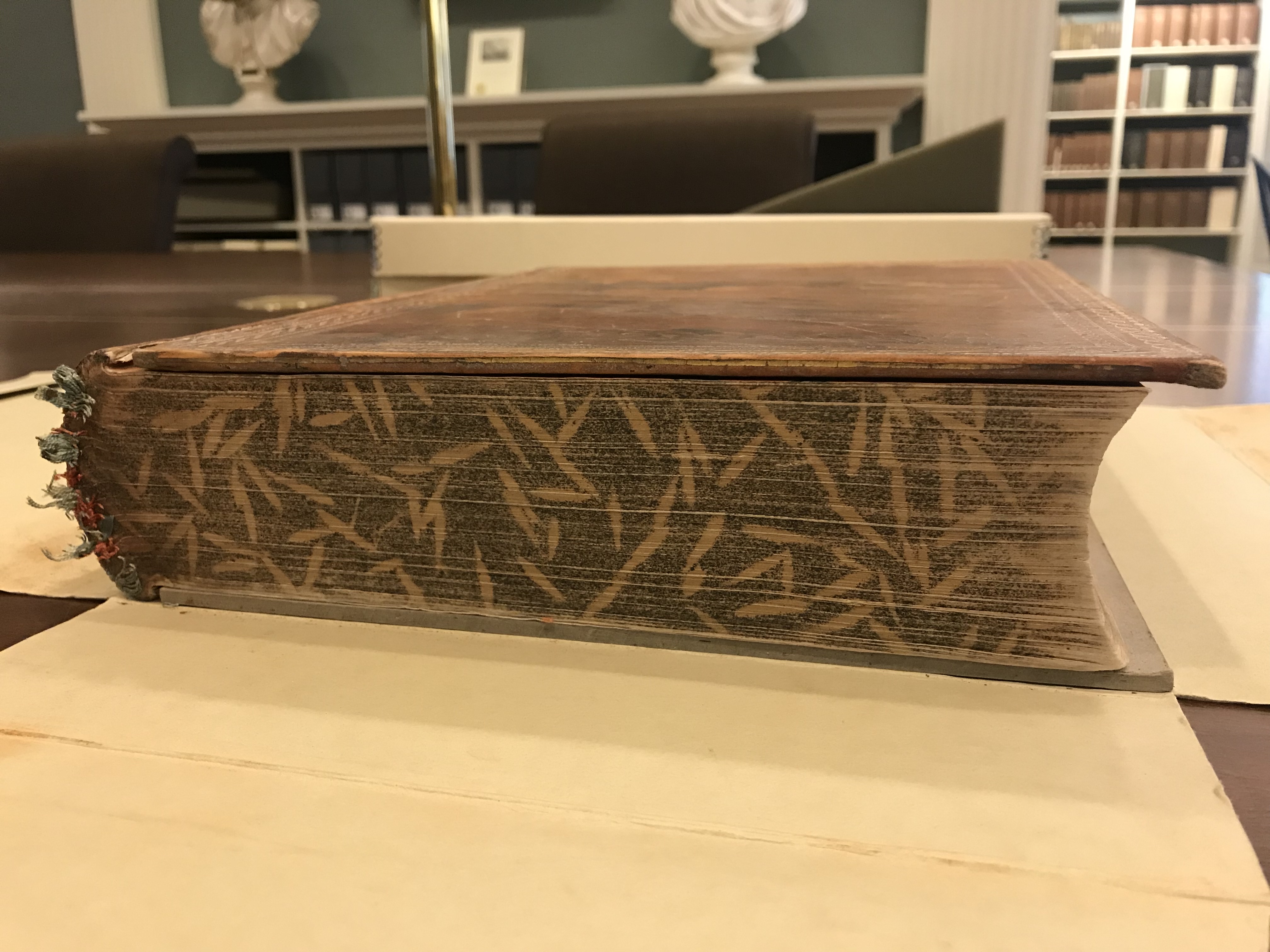
Although she was not a contributor of content to the Transactions, Jane Aitken nonetheless played an important role in its production and dissemination. Simply put, the new knowledge contained in the Transactions could not circulate throughout the learned world and raise the Society’s profile without the labor she invested to create the object that contained it. In particular, her exceptional binding work helped the volume to present itself as a respectable publication and a purchase-worthy commodity; her craft also helped the book to survive the long and bumpy roads it traveled to reach readers in Europe, the West Indies, and elsewhere in North America.
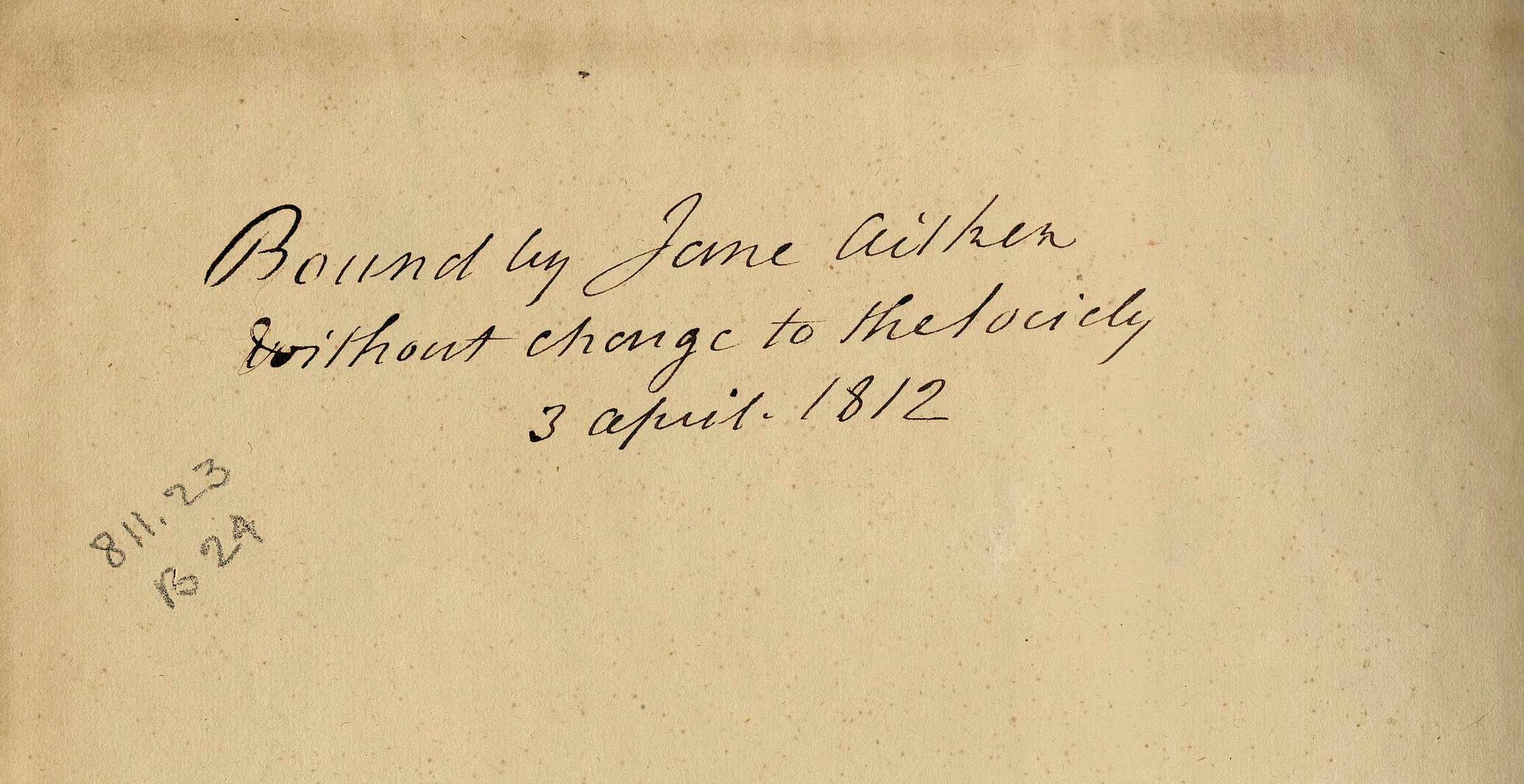
Unfortunately, Jane Aitken’s place in APS history is so well documented because, along with her father’s business, she inherited his substantial debt of $3,000. Aitken’s correspondence with John Vaughan is primarily a series of pleas for printing work, early payment, and small loans. But despite her business savvy, despite the quality of her work, and despite Vaughan’s sympathy and frequent support, the debt proved insurmountable. When Aitken’s printing equipment was seized by the local sheriff following her 1813 bankruptcy, Vaughan went so far as to purchase and lease it back to her at favorable rates. But in an era of economic downturn and scarce currency, Aitken’s print shop failed again the following year and she was thrown in debtor’s prison.
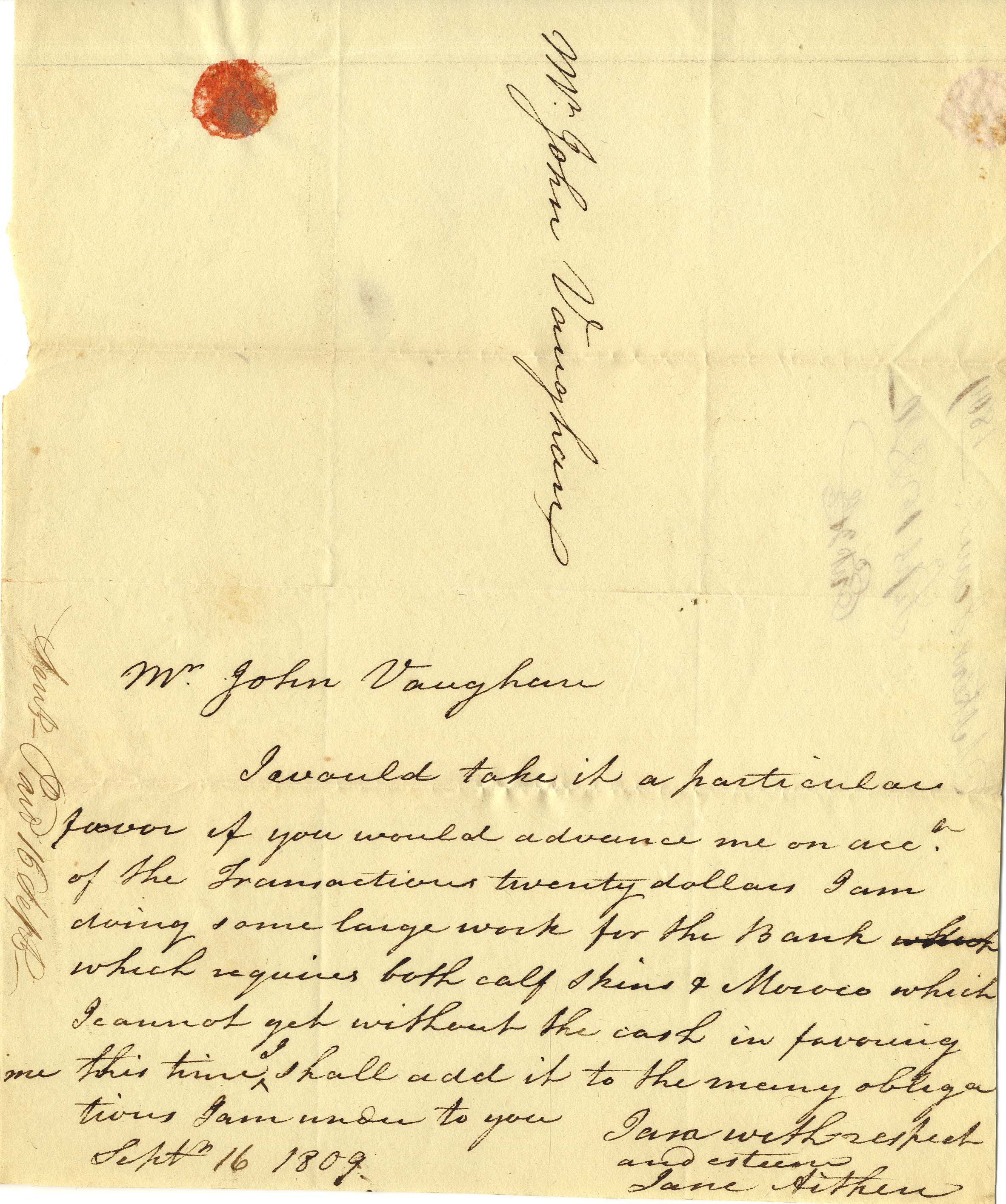
Aitken’s is a tragic story. But it is also one of incredible achievement. Against the odds, she made a lasting contribution to early American intellectual culture by constructing durable vehicles in which new ideas could circulate. Aitken’s story hints at a broader population of what scholars call science’s “invisible assistants.” Her story suggests that when we look beyond the category of Membership, we can see a more diverse cast of characters constellated around the American Philosophical Society.


